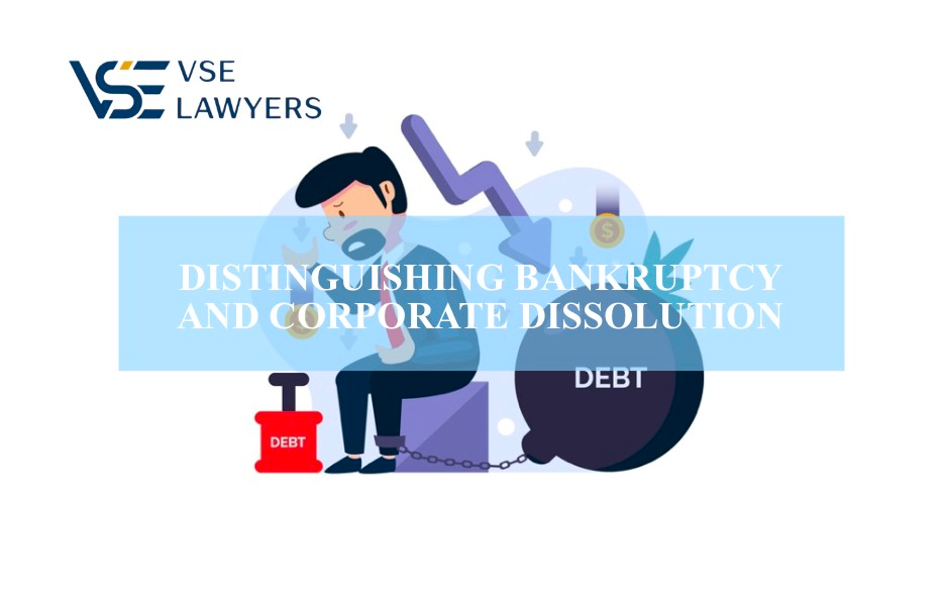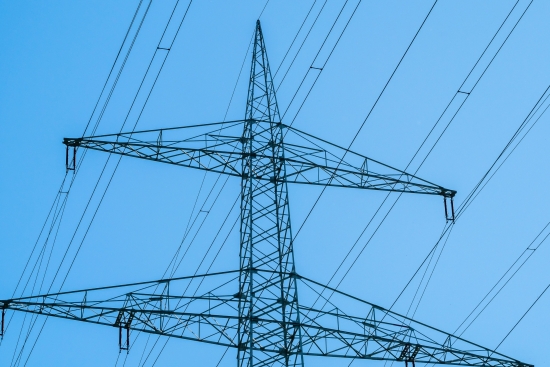DISTINGUISHING BANKRUPTCY AND CORPORATE DISSOLUTION
Bankruptcy and dissolution both have important consequences that should be kept in mind when making the decision to end both the legal and physical existence of a business. Although both can be related to insolvency - the inability to meet debt obligations - they are not interchangeable terms.
01/11/2023

- Legal basis
- Law on Enterprise 2020
- Law on Bankruptcy 2014
- Definitions of bankruptcy and dissolution
According to the Law on Bankruptcy 2014
- Bankruptcy is a situation in which an enterprise or cooperative loses its ability to pay and is declared bankrupt by the People's Court.
- Dissolution is the termination of business activities because the enterprise has achieved its set goals (subjective will) or is dissolved according to the provisions of law.
- Distinguishing bankruptcy and corporate dissolution
- Similarities
- Lead to the termination of the enterprise's existence.
- Lead to revocation of seals and business registration certificates.
- Must fulfill all property obligations.
- Differences
|
Criteria |
Bankruptcy |
Dissolution |
|
Reasons |
An enterprise is recognized as bankrupt when it simultaneously satisfies two conditions: + Has a small scope, the enterprise has lost its ability to pay due debts within 03 months from the payment due date. + The enterprise is declared bankrupt by the People's Court. |
An enterprise is dissolved when it falls into one of the following cases: + At the end of the operation term stated in the enterprise's charter without a decision on extension. + At the discretion of the Business owner. + The company no longer meets the minimum number of members as prescribed within 6 consecutive months; + The enterprise has its Business Registration Certificate revoked; + The enterprise has suffered a lot of losses but has not yet fallen into bankruptcy; due to the influence of current legal policies |
|
Persons with the right to request |
People who have the right to file a request to open bankruptcy proceedings include:: - Private business owners. - Chairman of the Board of Directors of a joint-stock company. - Chairman of the Members' Council of a limited liability company with two or more members. - Owner of a one-member limited liability company. - General partner of the partnership. - Unsecured creditor, partially secured creditor. - Employees, grassroots trade unions and immediate higher-level trade unions in places where grassroots-level trade unions have not yet been established. - The legal representative of the enterprise - Shareholders or groups of shareholders own 20% or more of ordinary shares for a continuous period of at least 06 months.. |
Those who have the right to file a petition for dissolution of the business include: - Business owners for private enterprises. - General Meeting of Shareholders for joint-stock companies - The Members' Council, the company owner for a limited company. - All general partners for partnerships. - Business registry agency |
|
Competent Agency |
The court is the only body that has the power to decide to declare bankruptcy and participate in the entire settlement process.
|
The business owner himself decides and settles during the entire process, only having to notify the business registration authority (Department of Planning and Investment) at the end. |
|
Methods to discharge assets |
Through the intermediary of the Administrator or the Enterprise managing and liquidating assets decided by the Court. |
The enterprise owner or the State management agency in charge of enterprises (compulsory dissolution) directly pays assets and settles debts. |
|
Principles to pay debt |
The payment of debts is only made when bankruptcy procedures have been opened and payment is made in the statutory order, it is not required to pay off debts if the assets of the enterprise or cooperative are no longer sufficient for payment. |
All debts and financial obligations must be paid before proceeding with dissolution procedures. |
|
Legal consequences to the owner of enterprise. |
Forbidded to assume management positions for a period of 3 years from the date the People's Court issues a decision to declare bankruptcy (except in cases of bankruptcy due to force majeure reasons). |
The business owner can immediately establish a new business; can still continue to work as a manager at the new business. |
----------
For more information, please contact:
Hoang Pham (James) / Managing Partner at: hoang.pham@vselawyers.com
© 2023 VSE LAWYERS LIMITED LIABILITY LAW COMPANY – All rights reserved.
Attention: This legal update is not an advice and should not be treated as such.
Subscribe To Legal Advice from VSE Lawyers
If you would like to have any legal questions, please contact us for our advice




